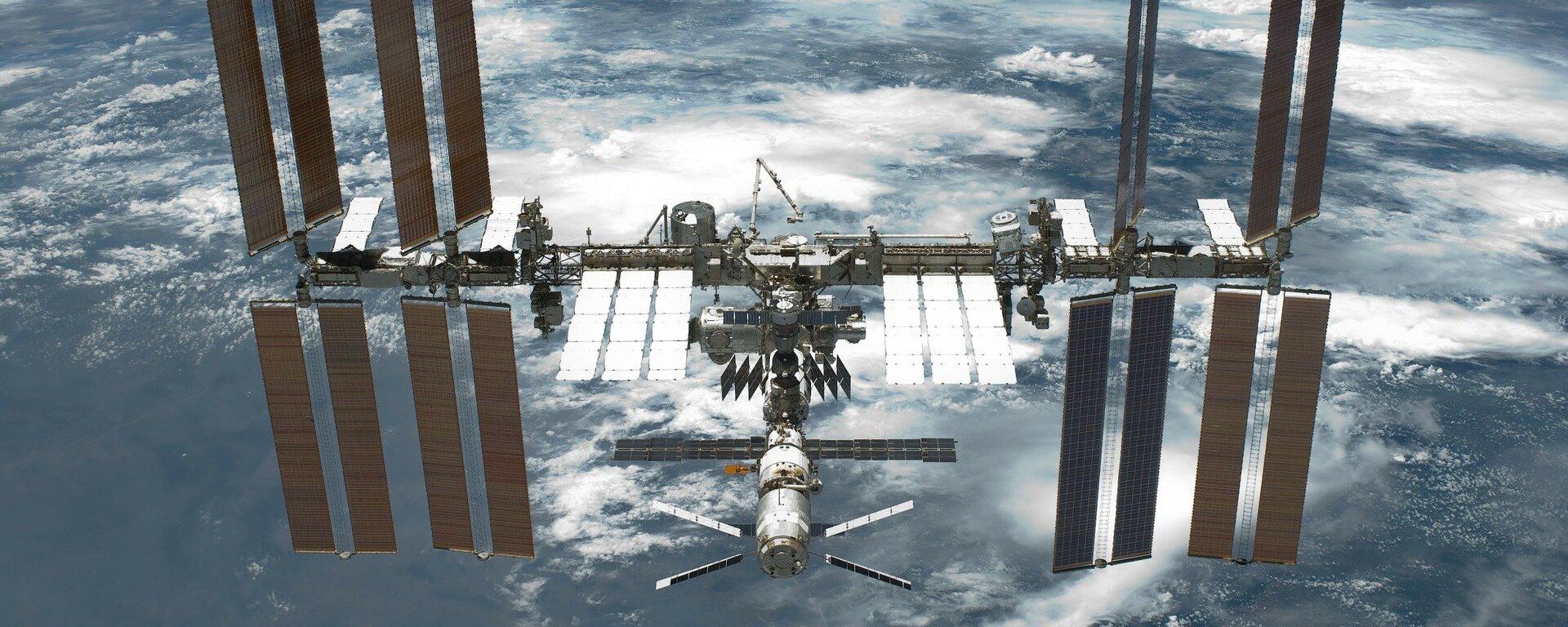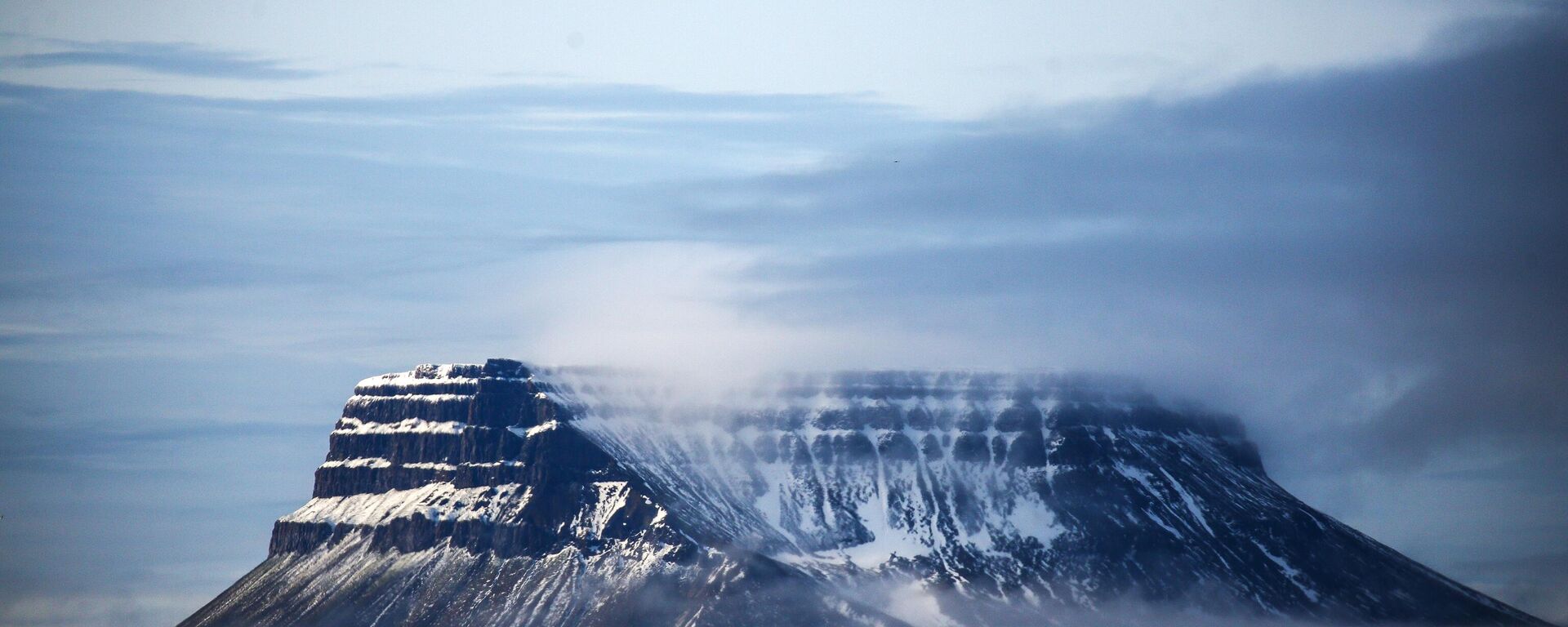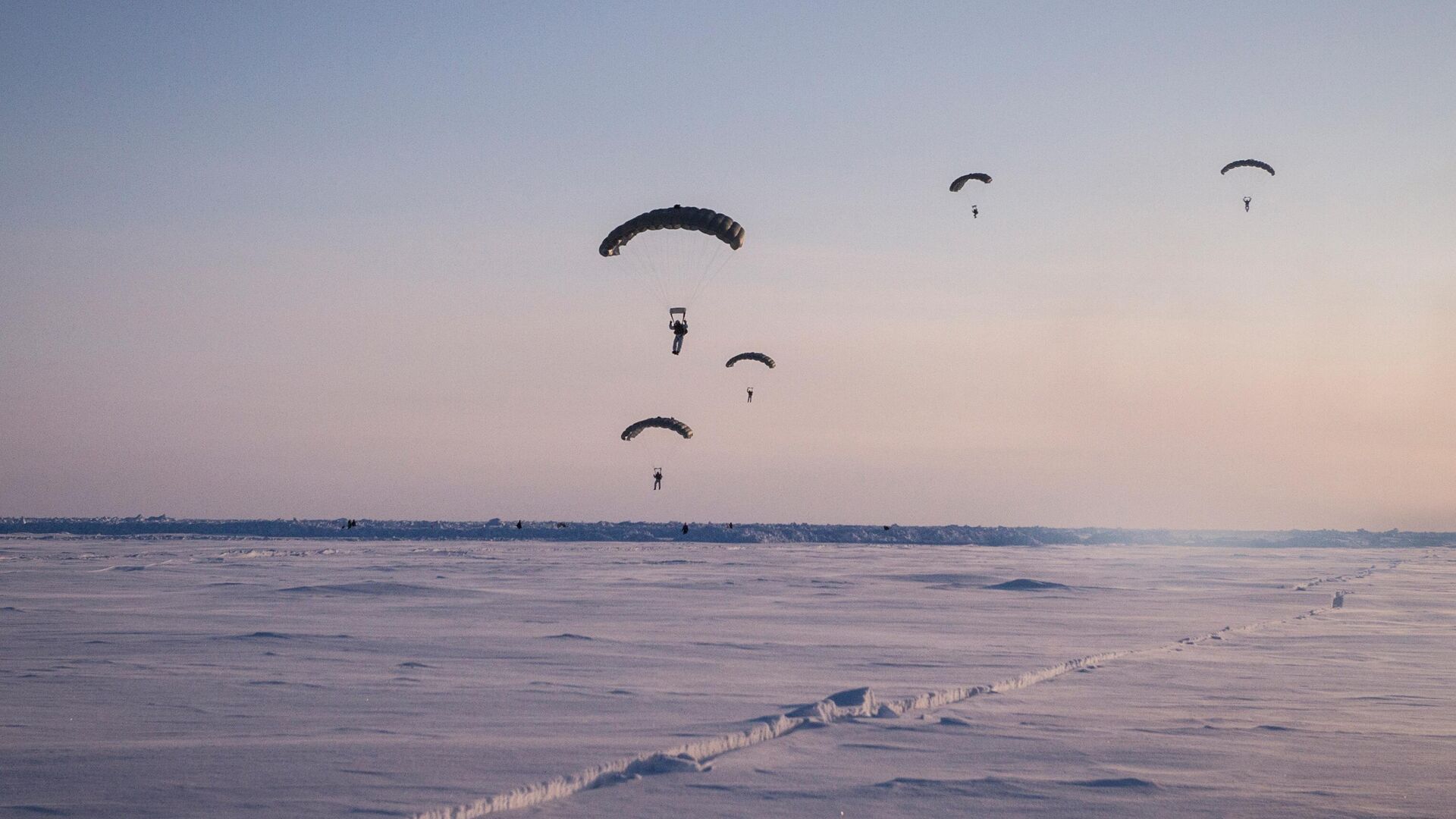https://sputnikglobe.com/20240328/russian-team-to-conduct-worlds-first-stratospheric-parachute-jump-to-north-pole-in-april-1117610789.html
Russian Team to Conduct World's First Stratospheric Parachute Jump to North Pole in April
Russian Team to Conduct World's First Stratospheric Parachute Jump to North Pole in April
Sputnik International
A Russian team of three specialists will conduct the world's first stratospheric parachute jump to a point at the North Pole near the Barneo polar station between April 2 and 5, which will be followed by research work in the area, Russian cosmonaut Mikhail Kornienko said on Thursday.
2024-03-28T13:09+0000
2024-03-28T13:09+0000
2024-03-28T13:09+0000
beyond politics
mikhail kornienko
north pole
russia
murmansk
sputnik
https://cdn1.img.sputnikglobe.com/img/07e8/03/1c/1117609959_0:7:3054:1725_1920x0_80_0_0_b414282851f55b35eb416bcf831bd1aa.jpg
"We are leaving for [Russia's northern city of] Murmansk on March 30 and from April 2-5, I think, depending on the weather, we will make it [the jump]," Kornienko told a press briefing. The expedition will include Kornienko, pilot Alexander Lynnik and space and stratospheric engineer Denis Efremov. The plane with the parachutists will depart from Murmansk, and they will make the jump in about three hours. To make the jump safely, the skydivers will use special equipment, including heated suits, and cover all exposed areas of their bodies with special patches to prevent thermal burns, he added. After the landing, the expedition is set to conduct research work. It will test emergency beacons of the COSPAS-SARSAT search and rescue system at extremely low temperatures of about -30 degrees Celsius. The expedition's tasks also include deploying the first server at the North Pole and establishing satellite communications via small satellites launched six months ago.
https://sputnikglobe.com/20231231/zero-gravity-cheers-russian-cosmonauts-ring-in-the-new-year-from-the-iss-1115911477.html
https://sputnikglobe.com/20230830/nature-on-ice-russias-northernmost-territory---franz-josef-land-1112980311.html
north pole
russia
murmansk
Sputnik International
feedback@sputniknews.com
+74956456601
MIA „Rossiya Segodnya“
2024
Sputnik International
feedback@sputniknews.com
+74956456601
MIA „Rossiya Segodnya“
News
en_EN
Sputnik International
feedback@sputniknews.com
+74956456601
MIA „Rossiya Segodnya“
Sputnik International
feedback@sputniknews.com
+74956456601
MIA „Rossiya Segodnya“
stratospheric parachute jump, russian north pole, russian cosmonauts, russia in space
stratospheric parachute jump, russian north pole, russian cosmonauts, russia in space
Russian Team to Conduct World's First Stratospheric Parachute Jump to North Pole in April
MOSCOW (Sputnik) - A Russian team of three specialists will conduct the world's first stratospheric parachute jump to a point at the North Pole near the Barneo polar station between April 2 and 5, which will be followed by research work in the area, Russian cosmonaut Mikhail Kornienko said on Thursday.
"We are leaving for [Russia's northern city of] Murmansk on March 30 and from April 2-5, I think, depending on the weather, we will make it [the jump]," Kornienko told a press briefing.
The expedition will include
Kornienko, pilot Alexander Lynnik and space and stratospheric engineer Denis Efremov. The plane with the parachutists will depart from
Murmansk, and they will make the jump in about three hours.

31 December 2023, 18:41 GMT
The jump will be conducted from an altitude of 10 kilometers (6.2 miles) at minus 60 degrees Celsius (-76 Fahrenheit), which, with the speed of the plane, would feel like -70 degrees Celsius, the cosmonaut said.
To make the jump safely, the skydivers will use special equipment, including heated suits, and cover all exposed areas of their bodies with special patches to prevent thermal burns, he added.

30 August 2023, 07:00 GMT
After the landing, the expedition is set to conduct research work. It will test emergency beacons of the
COSPAS-SARSAT search and rescue system at extremely low temperatures of about -30 degrees Celsius. The expedition's tasks also include deploying the first server at the
North Pole and establishing satellite communications via small satellites launched six months ago.




